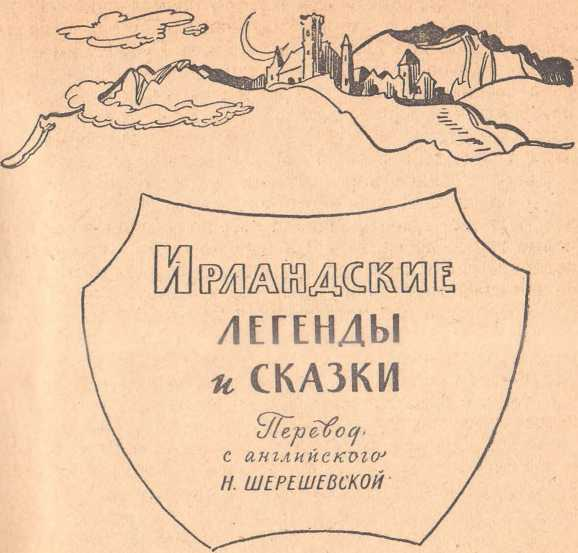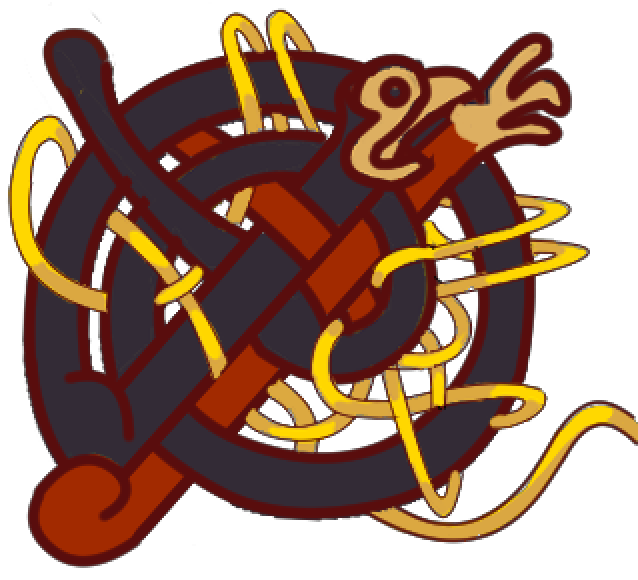Перевод: Н.В. Шершевская; 1960 г.
Когда в эпоху, давно минувшую, газеты потчевали нас шутливыми историями о королях, благополучно отцарствовавших когда-то, я каждый раз мысленно возвращался к королю Кормаку и к правдивым старинным летописям, которые сообщали мне и о нем и о том раннем времени.
— О Кормак, внук Конала, — спросил Койрбре, — каковы были твои обычаи в юности?
— Нетрудно сказать, отвечал Кормак. —
Я слушал лес,
я глядел на звезды,
я избегал тайн,
я молчал в толпе,
я говорил с людьми,
я был кроток на пирах,
я был горяч в бою,
я был нежен в дружбе,
я был великодушен со слабыми,
я был тверд с сильными.
Я не был высокомерен, хотя был силен;
я не обещал ничего, хотя был богат;
я не хвастал ничем, хотя был искусен во многом;
я не говорил плохо о том, кто отсутствовал;
я не поносил, а восхвалял;
я не просил, но давал,
ибо только эти обычаи делают юношу мужем и истинным воином.
— О Кормак, внук Конала, — спросил Койрбре, — а каким обычаям следовать мне?
— Нетрудно сказать, — отвечал Кормак, — если следовать учению:
Не смейся над старым, если ты молодой;
и над бедным, если ты богатый;
и над хромым, если ты проворный;
и над слепым, если ты зрячий;
и над больным, если ты здоровый;
и над тупым, если ты способный;
и над глупым, если ты мудрый.
Не будь слишком умен и не будь слишком глуп;
не будь слишком самонадеян и не будь слишком застенчив;
не будь слишком горд и не будь слишком скромен
не будь слишком разговорчив и не будь слишком молчалив;
не будь слишком суров и не будь слишком добр.
Если ты будешь слишком умен, от тебя будут ждать слишком многого;
если ты будешь слишком самонадеян, тебя будут избегать;
если ты будешь слишком скромен, тебя не будут уважать;
если ты будешь слишком болтлив, на тебя не будут обращать внимания;
если ты будешь слишком молчалив, с тобой не будут считаться;
если ты будешь слишком суров, от тебя отшатнутся;
если ты будешь слишком добр, тебя растопчут.
— О Кормак, внук Конала, — спросил Койрбре, — а какие обычаи хороши для короля?
— Нетрудно сказать, — отвечал Кормак. — Для него лучше всего:
твердость без гнева,
настойчивость без спора,
вежливость без надменности;
пусть он охраняет древние науки,
вершит правосудие,
вещает истину,
почитает поэтов,
поклоняется Всевышнему Богу.
Ему нужно спрашивать совета у мудрого,
следовать учениям древности,
блюсти законы,
быть честным с друзьями,
быть мужественным с врагами,
изучать искусства,
постигать языки,
слушать старейших,
оставаться глухим к клевете.
Пусть он будет нежен, пусть он будет суров,
пусть он будет страстен,
пусть он будет милостив, пусть он будет справедлив,
пусть он будет терпим, пусть он будет упорен,
пусть ненавидит ложь, пусть любит правду,
пусть не помнит зла, пусть не забывает добро,
пусть за столом его будет людей много, а на тайном совете мало,
пусть союзы его будут тверды, пусть налоги его будут легки,
пусть суждения его и решения будут быстры и ясны.
Ибо именно по этим качествам и узнаются истинные короли.



